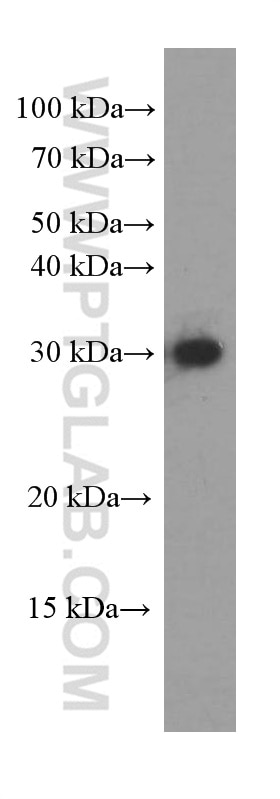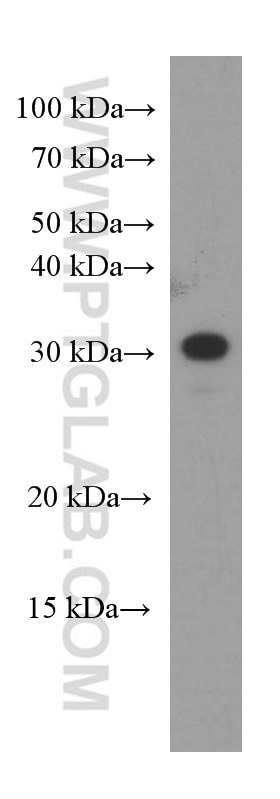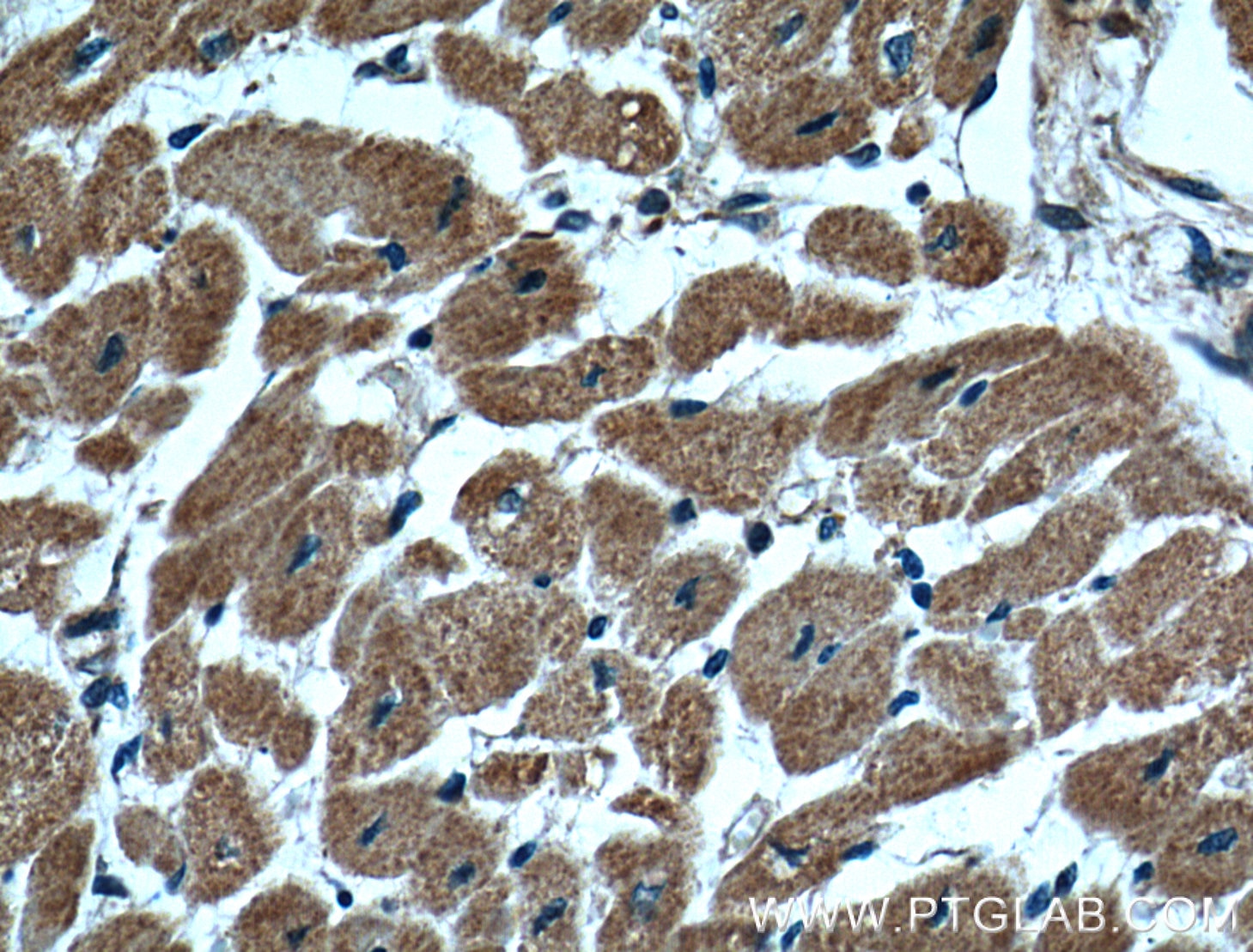- Phare
- Validé par KD/KO
Anticorps Monoclonal anti-CLPP
CLPP Monoclonal Antibody for IHC, WB, ELISA
Hôte / Isotype
Mouse / IgG3
Réactivité testée
Humain, porc et plus (1)
Applications
WB, IHC, IF, ELISA
Conjugaison
Non conjugué
CloneNo.
2E1D9
N° de cat : 66271-1-Ig
Synonymes
Galerie de données de validation
Applications testées
| Résultats positifs en WB | tissu cardiaque humain, tissu cardiaque de porc |
| Résultats positifs en IHC | tissu cardiaque humain il est suggéré de démasquer l'antigène avec un tampon de TE buffer pH 9.0; (*) À défaut, 'le démasquage de l'antigène peut être 'effectué avec un tampon citrate pH 6,0. |
Dilution recommandée
| Application | Dilution |
|---|---|
| Western Blot (WB) | WB : 1:500-1:2000 |
| Immunohistochimie (IHC) | IHC : 1:100-1:400 |
| It is recommended that this reagent should be titrated in each testing system to obtain optimal results. | |
| Sample-dependent, check data in validation data gallery | |
Applications publiées
| KD/KO | See 1 publications below |
| WB | See 3 publications below |
| IF | See 1 publications below |
Informations sur le produit
66271-1-Ig cible CLPP dans les applications de WB, IHC, IF, ELISA et montre une réactivité avec des échantillons Humain, porc
| Réactivité | Humain, porc |
| Réactivité citée | Humain, souris |
| Hôte / Isotype | Mouse / IgG3 |
| Clonalité | Monoclonal |
| Type | Anticorps |
| Immunogène | CLPP Protéine recombinante Ag8420 |
| Nom complet | ClpP caseinolytic peptidase, ATP-dependent, proteolytic subunit homolog (E. coli) |
| Masse moléculaire calculée | 30 kDa |
| Poids moléculaire observé | 26 kDa, 30 kDa |
| Numéro d’acquisition GenBank | BC002956 |
| Symbole du gène | CLPP |
| Identification du gène (NCBI) | 8192 |
| Conjugaison | Non conjugué |
| Forme | Liquide |
| Méthode de purification | Purification par protéine G |
| Tampon de stockage | PBS avec azoture de sodium à 0,02 % et glycérol à 50 % pH 7,3 |
| Conditions de stockage | Stocker à -20°C. Stable pendant un an après l'expédition. L'aliquotage n'est pas nécessaire pour le stockage à -20oC Les 20ul contiennent 0,1% de BSA. |
Informations générales
CLPP is the putative ATP-dependent Clp protease proteolytic subunit and also named as endopeptidase Clp. It belongs to the peptidase S14 family. Clp cleaves peptides in various proteins in a process that requires ATP hydrolysis. It may be responsible for a fairly general and central housekeeping function rather than for the degradation of specific substrates. This protein has a transit peptide of 56 amino acid.
Protocole
| Product Specific Protocols | |
|---|---|
| WB protocol for CLPP antibody 66271-1-Ig | Download protocol |
| IHC protocol for CLPP antibody 66271-1-Ig | Download protocol |
| Standard Protocols | |
|---|---|
| Click here to view our Standard Protocols |
Publications
| Species | Application | Title |
|---|---|---|
Cells Inactivity of Peptidase ClpP Causes Primary Accumulation of Mitochondrial Disaggregase ClpX with Its Interacting Nucleoid Proteins, and of mtDNA. | ||
PeerJ Mitochondrial unfolded protein response gene CLPP changes mitochondrial dynamics and affects mitochondrial function.
| ||
NeuroImmune Pharm Ther Resveratrol and its analogs suppress HIV replication, oxidative stress, and inflammation in macrophages |




